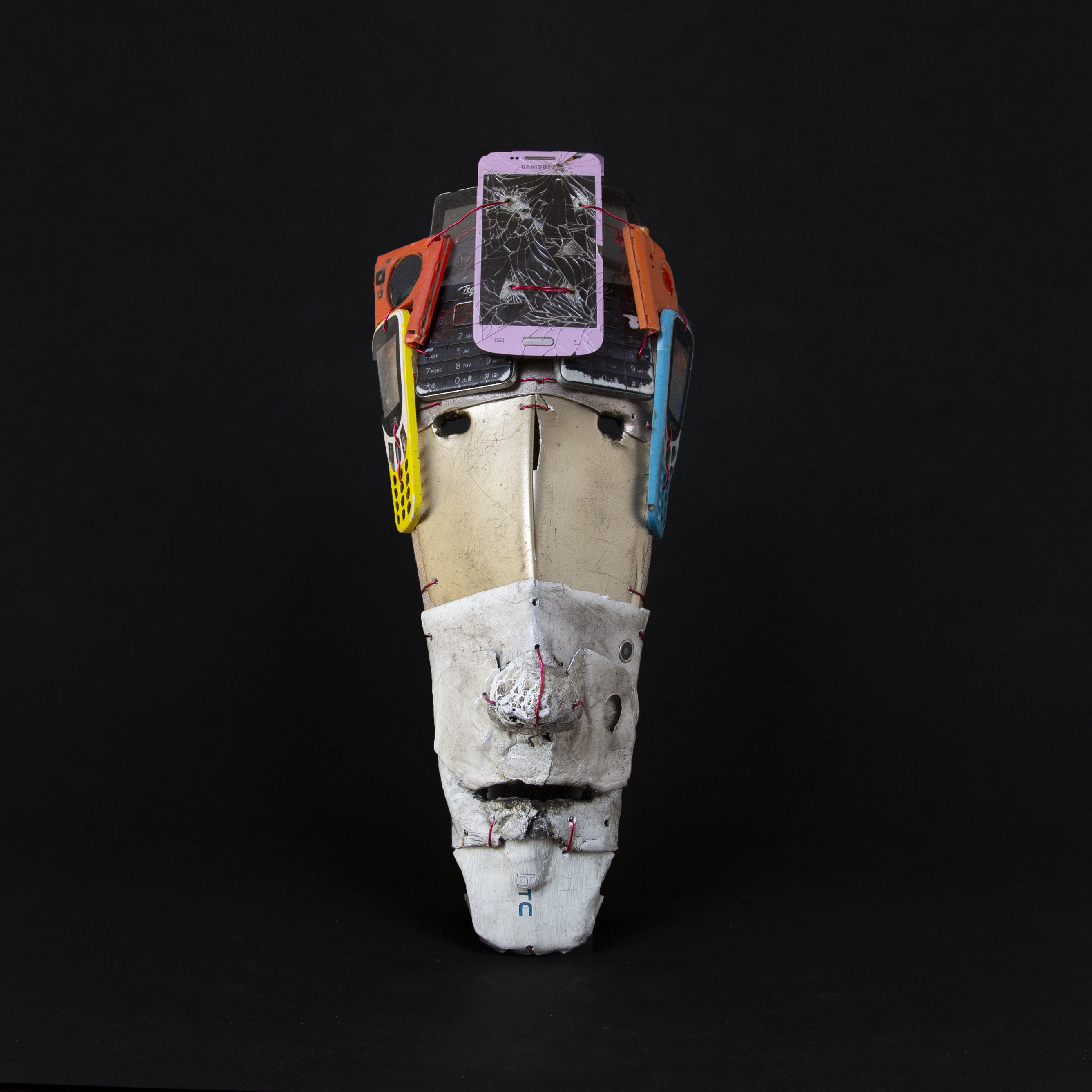
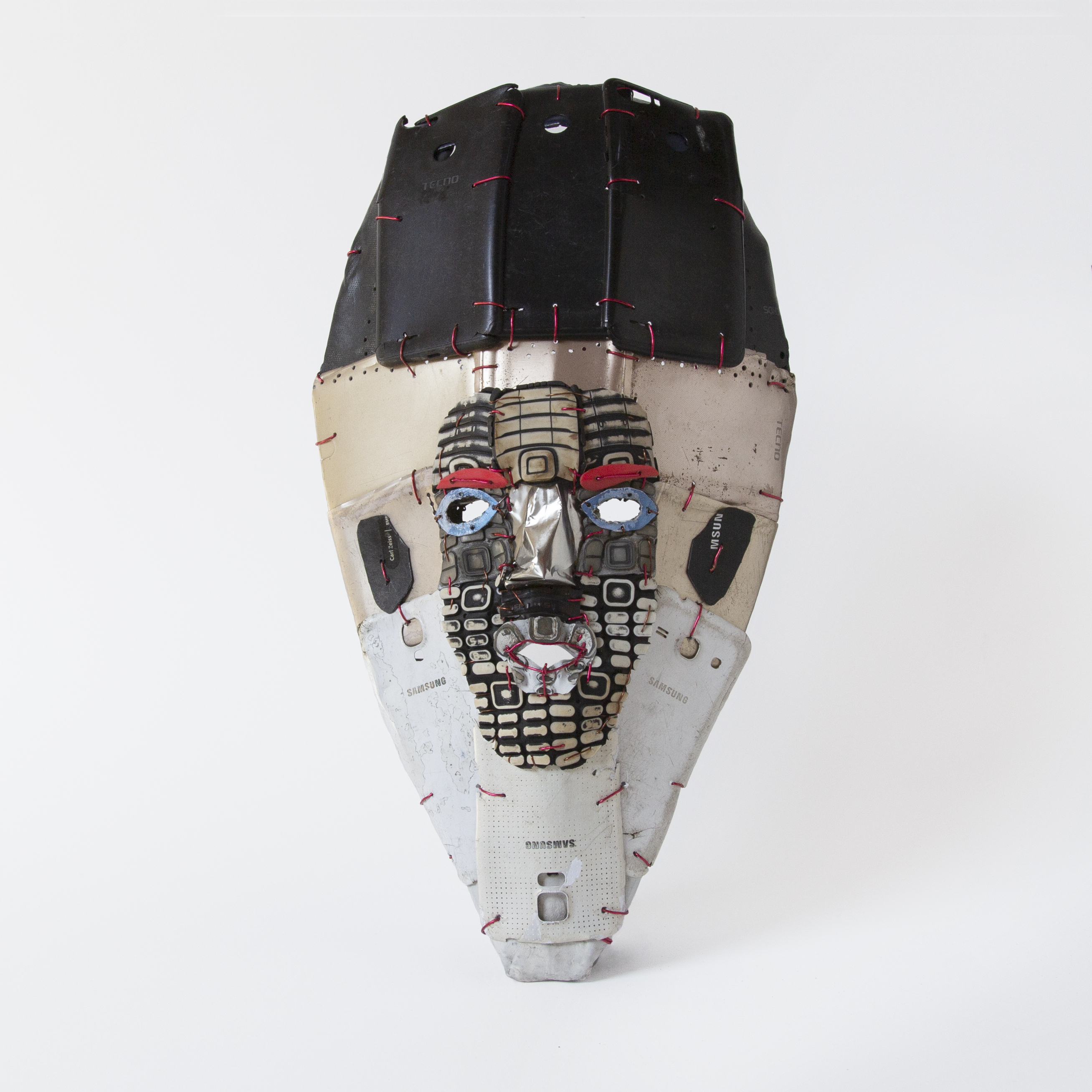

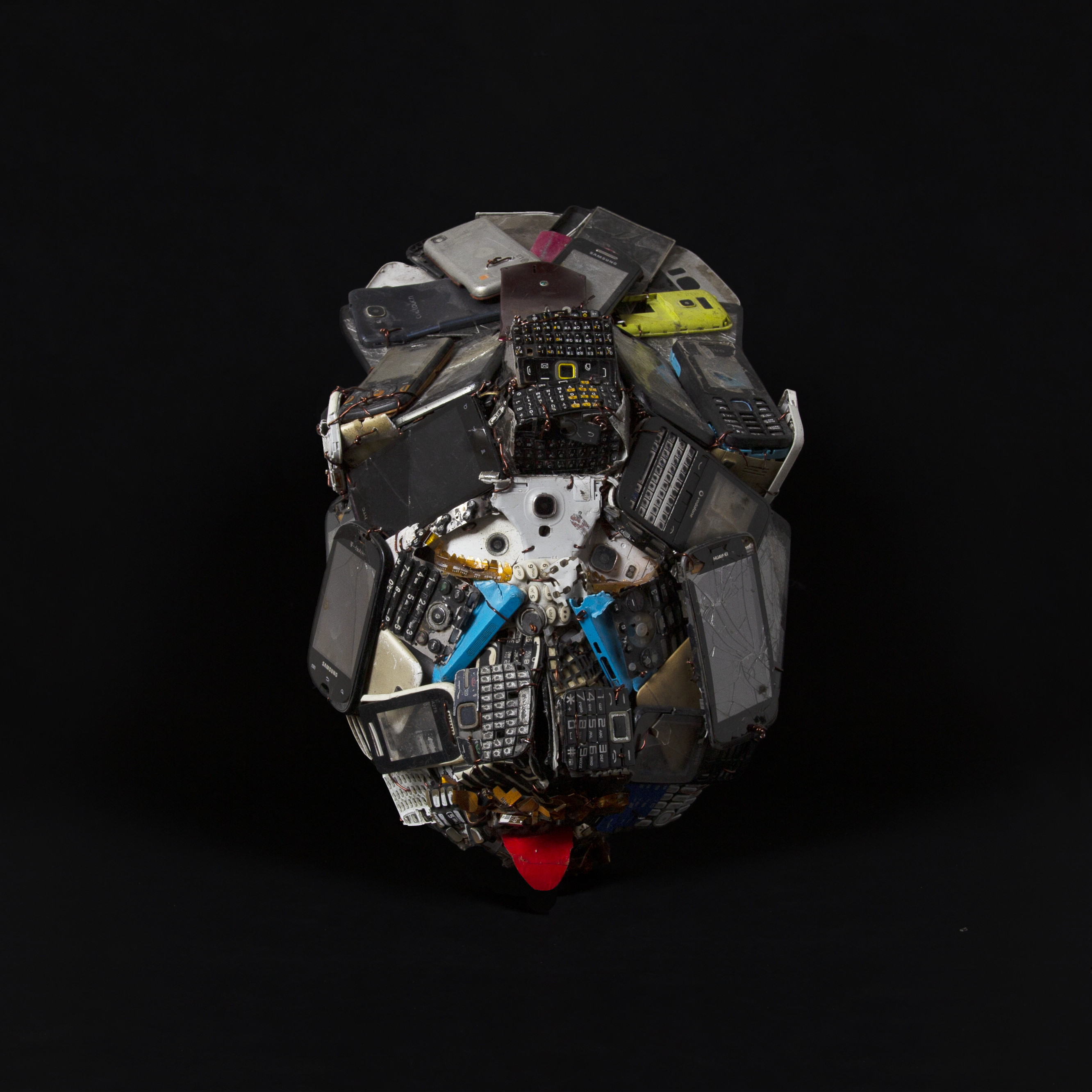
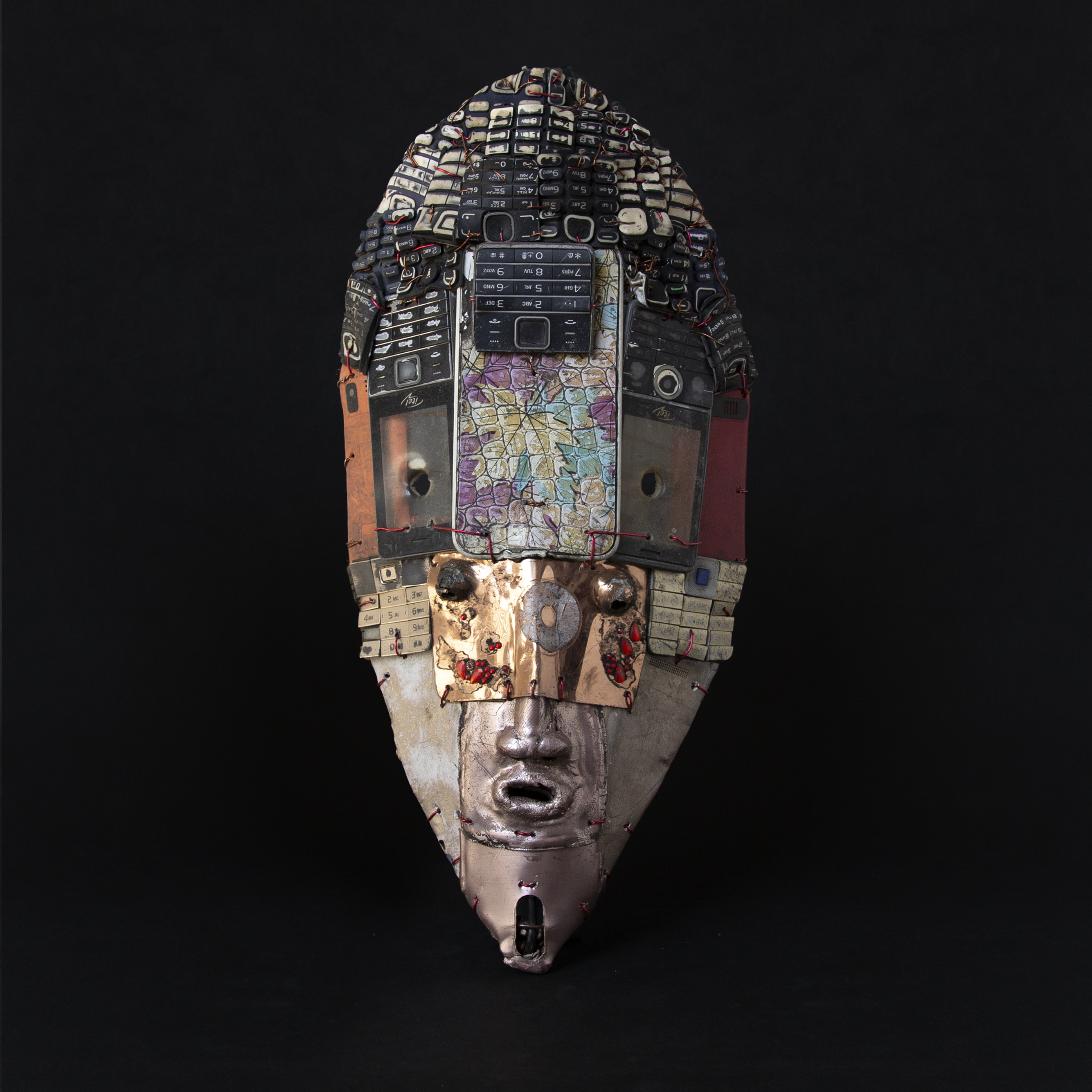
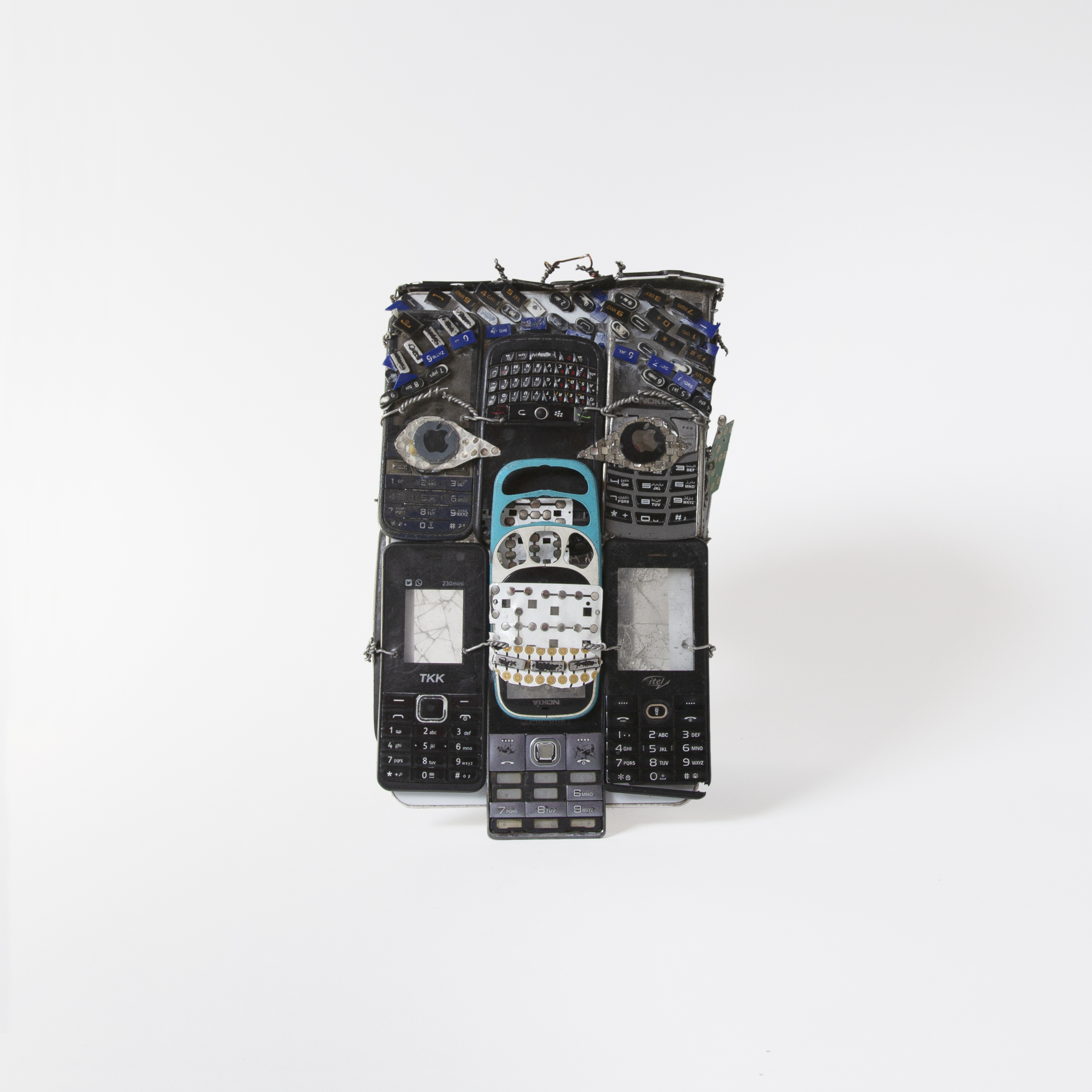
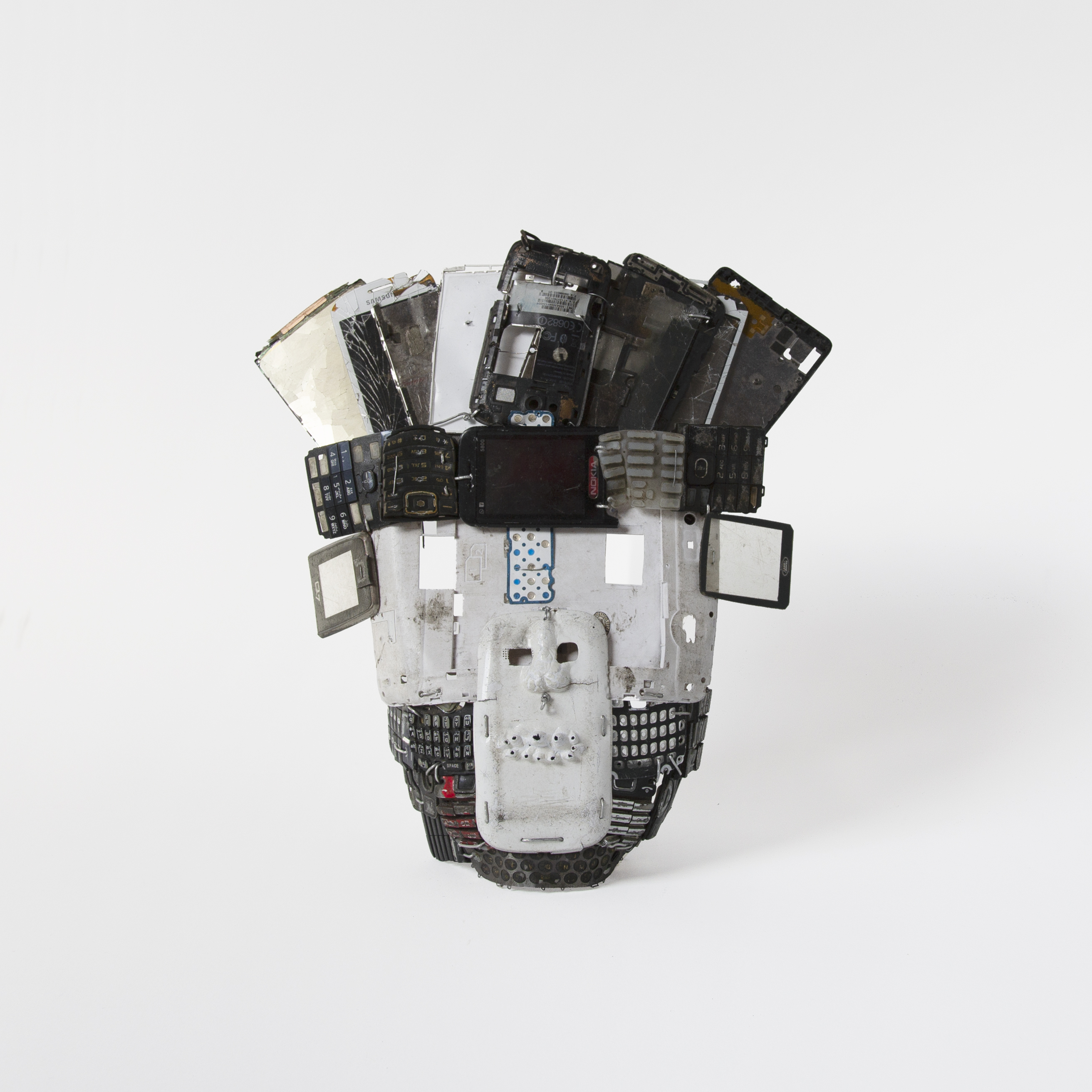
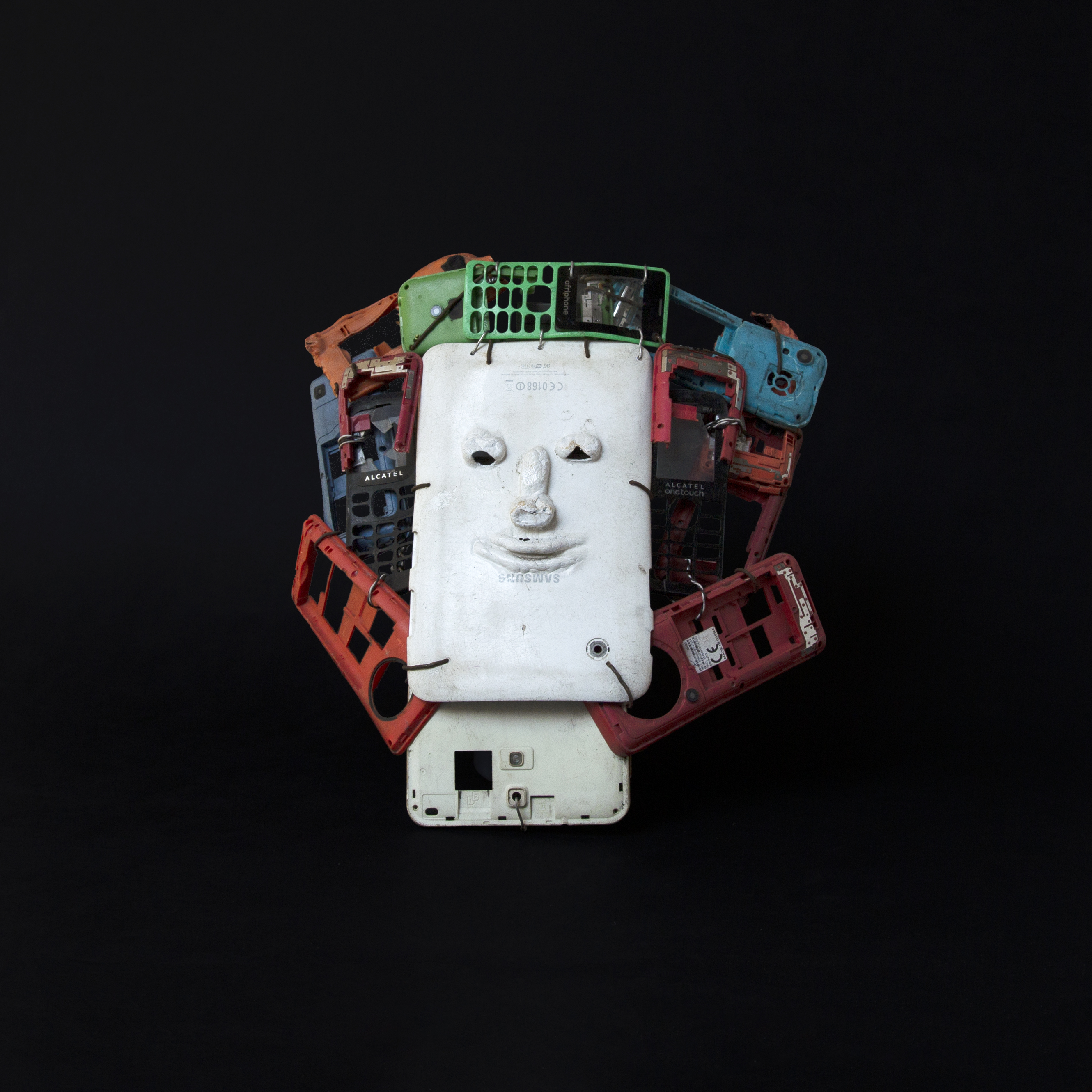
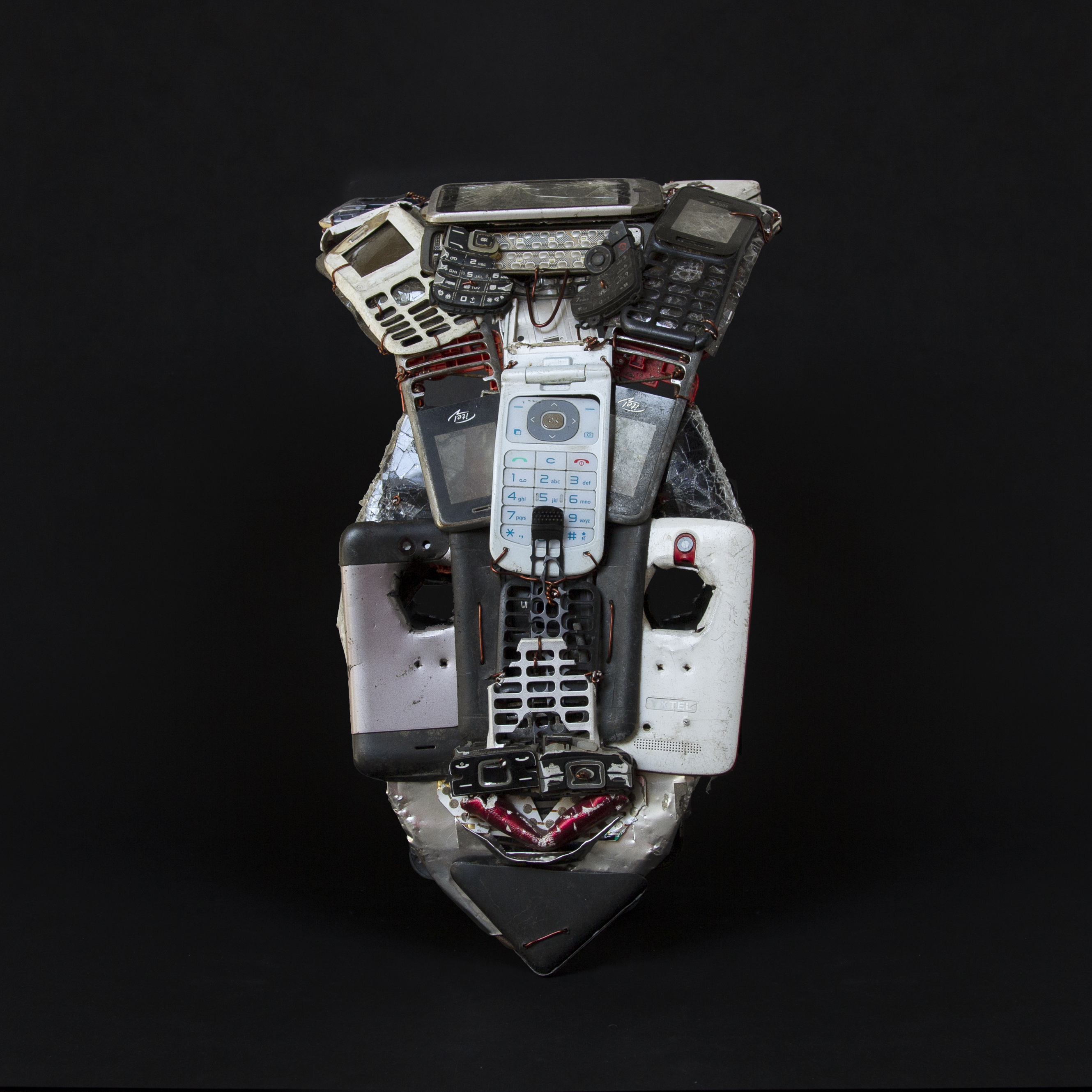



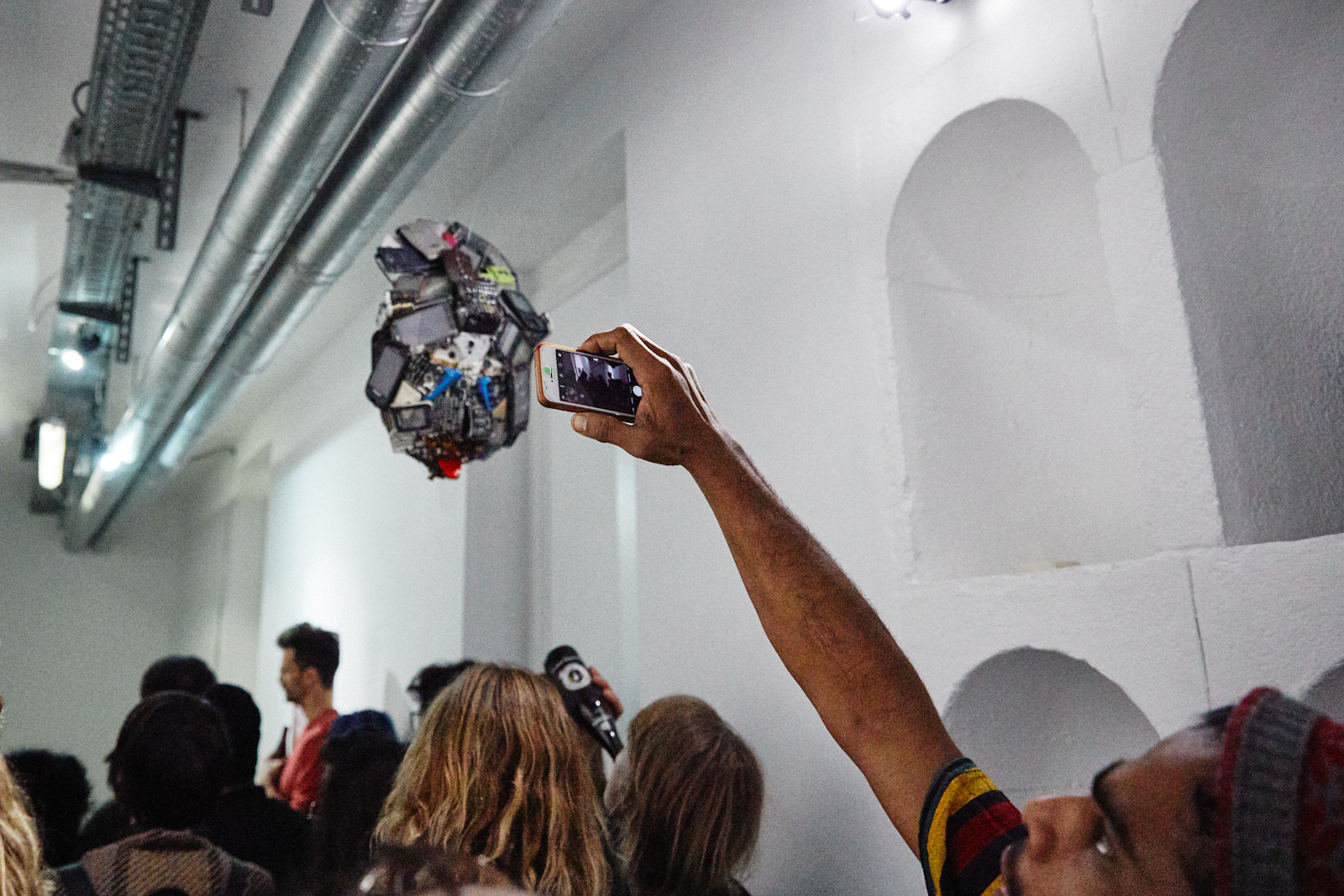


La Face Cachée du Coltan
[The Hidden Face of Coltan]
2018 – [ongoing]
Series of masks.
Mobile phone debris.
[The Hidden Face of Coltan]
2018 – [ongoing]
Series of masks.
Mobile phone debris.
For this series of masks, Nada Tshibwabwa dissociated the heads as masks from what would usually be a whole costume, and thus references the violent decontextualisation
of masks by colonial collectors.
Nada Tshibwabwa intends to establish a mirror effect between the viewer and the work. The masks allow a direct, multifaceted reading, from face to face, reflecting thoughts on resources, the violence of contemporary neocolonial trade, craft, spirituality and hierarchies of knowledges.
Nada Tshibwabwa transfers form-languages of wooden masks, of which some are decorated with feathers for instance, to the materiality of mobile phones. He references diverse messages and codes used in the communication with the immaterial, ancestral world, drawing our attention to the injuries and deaths people suffer and have suffered due to extraction works. He sees this as a mirror to previous generations (who are now ancestors), enduring difficulties and risks to send messages. With the use of discarded mobile phones, Nada Tshibwabwa ties a web encompassing recent, shared memory with its less recent, less shared, or rather silenced, past, counting on the reaction these daily objects, so familiar and close to global everyday lifes, may evoke.
Nada Tshibwabwa intends to establish a mirror effect between the viewer and the work. The masks allow a direct, multifaceted reading, from face to face, reflecting thoughts on resources, the violence of contemporary neocolonial trade, craft, spirituality and hierarchies of knowledges.
Nada Tshibwabwa transfers form-languages of wooden masks, of which some are decorated with feathers for instance, to the materiality of mobile phones. He references diverse messages and codes used in the communication with the immaterial, ancestral world, drawing our attention to the injuries and deaths people suffer and have suffered due to extraction works. He sees this as a mirror to previous generations (who are now ancestors), enduring difficulties and risks to send messages. With the use of discarded mobile phones, Nada Tshibwabwa ties a web encompassing recent, shared memory with its less recent, less shared, or rather silenced, past, counting on the reaction these daily objects, so familiar and close to global everyday lifes, may evoke.